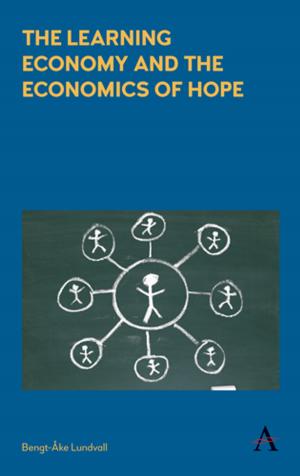SouthSouth Trade and Finance in the Twenty-First Century
Rise of the South or a Second Great Divergence
Nonfiction, Social & Cultural Studies, Political Science, International, International Relations, Business & Finance| Author: | Omar Dahi, Firat Demir | ISBN: | 9781783085873 |
| Publisher: | Anthem Press | Publication: | October 10, 2016 |
| Imprint: | Anthem Press | Language: | English |
| Author: | Omar Dahi, Firat Demir |
| ISBN: | 9781783085873 |
| Publisher: | Anthem Press |
| Publication: | October 10, 2016 |
| Imprint: | Anthem Press |
| Language: | English |
The last two-three decades have seen a dramatic rise in South–South economic relations, yet no book exists that systematically examines these changes in the global economy. Most studies on South–South relations focus on regionalism, that is regional integration in South America, preferential trading agreements, or China–Africa relations. While studies/books on South–South trade existed in the 1970s and 1980s, the new round of South–South linkages has not been covered. In addition to filling this gap, this book also includes a historical, theoretical, and empirical examination that attempts to both place current South–South relations within their historical trajectory and examine in what ways current South–South relations differ from previous attempts (‘new-regionalism’), especially that most of the previous discussions took place under the Import Substitution Industrialization or relatively protectionist era. The book contains rigorous empirical analysis of trade and finance to uncover the developmental implications of South–South trade and finance. Finally, the book engages with the burgeoning “new-developmentalism” to discuss how South–South economic integration and the rise of the South as an economic power and as an actor in multinational institutions both benefits and harms the developmental opportunities for poor and middle income South countries.
The last two-three decades have seen a dramatic rise in South–South economic relations, yet no book exists that systematically examines these changes in the global economy. Most studies on South–South relations focus on regionalism, that is regional integration in South America, preferential trading agreements, or China–Africa relations. While studies/books on South–South trade existed in the 1970s and 1980s, the new round of South–South linkages has not been covered. In addition to filling this gap, this book also includes a historical, theoretical, and empirical examination that attempts to both place current South–South relations within their historical trajectory and examine in what ways current South–South relations differ from previous attempts (‘new-regionalism’), especially that most of the previous discussions took place under the Import Substitution Industrialization or relatively protectionist era. The book contains rigorous empirical analysis of trade and finance to uncover the developmental implications of South–South trade and finance. Finally, the book engages with the burgeoning “new-developmentalism” to discuss how South–South economic integration and the rise of the South as an economic power and as an actor in multinational institutions both benefits and harms the developmental opportunities for poor and middle income South countries.















